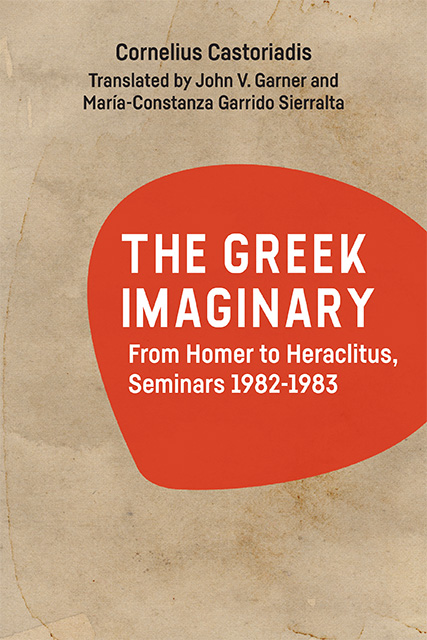I - Seminar from November 10, 1982
Published online by Cambridge University Press: 20 October 2023
Summary
The question I am going to take up this year concerns the importance of, and what’s of interest for us in, the Greek world and the tradition one may call Greco-Occidental. To highlight its specificity properly, at times I will have to surrender myself to what is, in many respects, a very perilous exercise of comparing it with certain essential traits of the monotheistic tradition. To that end, I will comment on several aspects of the Old Testament, which, as you know, is the common root of the three monotheistic religions, Judaism, Christianity, and Islam. My thesis here—and those who have followed me up to this point can doubtless surmise it—is that there is an opposition between the monotheistic tradition as a tradition of heteronomy and the properly speaking Greek or democratic tradition as a tradition of autonomy. We will therefore attempt to go to the roots of the Greek world, i.e. to what one may call the primary grasp of the being of the world and of human existence in the world by the Greeks, prior to all philosophical or political thematization. We will become familiar, thus, with the kernel of all the imaginary significations that are subsequently deployed and instituted in Greece. I would like in what follows to lay out in detail what, in this grasp, eventually came to be explicitly thematized and examined by philosophy, namely the three great oppositions that mark ancient Greek thinking: that between being and appearing (einai and phainesthai); that between truth and opinion (alētheia and doxa); and that between what we call nature and law. On the last, the translation does not allow us to understand what’s at stake; for the Greeks this is the opposition between physis and nomos.
We will also talk about the polis, about the city, about the creation of this form of collective life and of what accompanies it, namely the selfconstitution of a body of citizens who consider themselves autonomous and responsible, and who govern themselves by legislating. Of course, this is not achieved in one day, nor peacefully.
- Type
- Chapter
- Information
- The Greek ImaginaryFrom Homer to Heraclitus, Seminars 1982-1983, pp. 3 - 14Publisher: Edinburgh University PressPrint publication year: 2023



